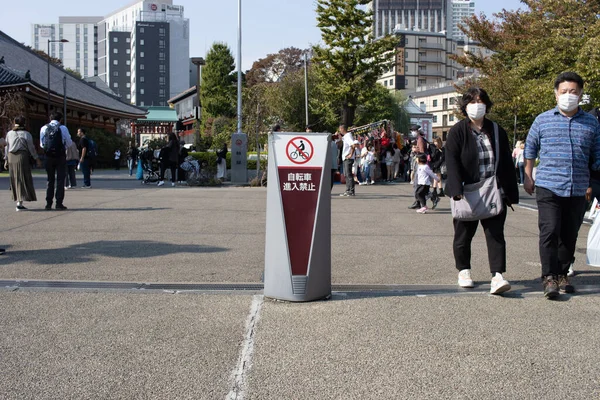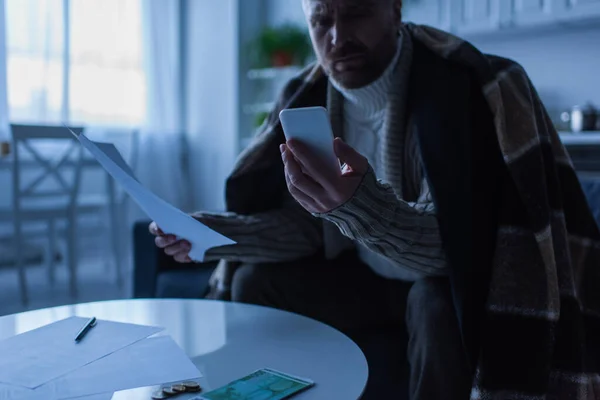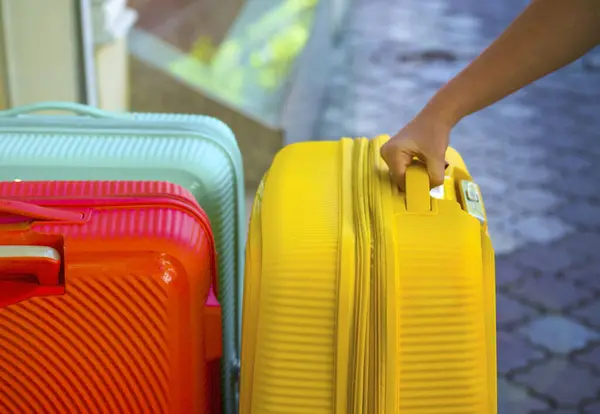Solo travel offers unmatched freedom and self-discovery opportunities, but it also means you’re your own safety net when things go sideways. Unlike group travelers who can pool resources and support each other during emergencies, solo adventurers must anticipate problems and prepare solutions in advance.
A missed flight becomes more complicated when you’re navigating foreign airports alone, and losing your wallet in a remote location creates challenges that require immediate, independent solutions. Here’s a list of 16 backup plan essentials that help solo travelers handle emergencies and unexpected situations with confidence.
Multiple Payment Method Distribution

Never carry all your money and cards in one location — distribute cash, credit cards, and debit cards across different pockets, bags, and hiding spots throughout your belongings. Keep emergency cash hidden in shoes, sewn into clothing, or stored in decoy items that thieves typically ignore.
Maintain at least three different payment methods: primary cards for daily use, backup cards stored separately, and emergency cash in both local currency and US dollars. This distribution ensures you’ll always have access to funds even if you lose your main wallet or bag to theft or accident.
Digital Document Backup System

Create encrypted digital copies of all important documents stored in multiple locations: cloud storage, email drafts, and secure messaging apps that you can access from any internet connection. Include passport photos, visa information, insurance policies, emergency contacts, and copies of prescriptions that prove your need for specific medications.
Take photos of your credit cards (front and back) and store them separately from the physical cards. This digital backup system allows you to prove your identity and access critical information, even if all physical documents are lost or stolen.
Like Travel Pug’s content? Follow us on MSN.
Emergency Contact Communication Plan

Establish regular check-in schedules with trusted contacts at home who know your itinerary and can take action if you fail to communicate as planned. Provide detailed contact information for your accommodations, local emergency services, and nearest embassy or consulate locations.
Create a simple code system that allows you to communicate distress without alerting potential threats — perhaps a specific phrase in messages that indicate you need help. Share access to your digital accounts with trusted family members who can monitor your activity and take action if needed.
Accommodation Backup Research

Research and bookmark alternative accommodation options in each destination before problems arise, including hostels, budget hotels, and emergency shelters that accept walk-in guests. Save contact information and addresses for these backup options in multiple formats: written notes, phone contacts, and digital bookmarks accessible offline.
Understand local accommodation customs and payment requirements, as some places require cash deposits or don’t accept foreign credit cards. This preparation prevents panic-driven decisions when your primary accommodation falls through due to overbooking, natural disasters, or other unforeseen circumstances.
Medical Emergency Preparation

Carry comprehensive first aid supplies appropriate for your destination and planned activities, including prescription medications, pain relievers, antiseptics, bandages, and any specific treatments for chronic conditions. Research medical facilities and pharmacy locations along your route, noting which accept foreign insurance and which require cash payment.
Maintain a detailed medical information card listing allergies, chronic conditions, current medications, and emergency contact information in both English and local languages. Consider purchasing medical evacuation insurance for destinations with limited healthcare infrastructure.
Like Travel Pug’s content? Follow us on MSN.
Transportation Alternative Planning

Research multiple transportation options between destinations and maintain contact information for taxi services, ride-sharing apps, bus stations, and train schedules that operate when your primary plans fail. Download offline map applications that work without internet connectivity and carry physical maps as ultimate backups. Keep small bills and exact change for emergency transportation, as drivers often can’t break large denominations during urgent situations.
Understand local transportation customs and pricing to avoid exploitation when you’re vulnerable and need quick solutions.
Communication Device Redundancy

Carry multiple communication devices and charging solutions to ensure you can always contact help when needed. Pack backup phone chargers, portable battery banks, and charging cables for different device types. Consider carrying an older phone as a backup that uses different charging ports than your primary device.
Download offline translation apps and maps before traveling to areas with limited internet connectivity. Some solo travelers carry satellite communicators for remote areas where cellular coverage is unreliable.
Local Embassy and Consulate Information

Research and save complete contact information for your country’s embassy or consulate in each destination, including after-hours emergency numbers and procedures for reporting lost passports or requesting emergency assistance. Understand what services they provide and what documentation you’ll need to access help.
Register with your embassy’s travel notification system so they know your location and can contact you during emergencies or natural disasters. Keep this information accessible both digitally and in written format since you may need it when electronic devices aren’t available.
Like Travel Pug’s content? Follow us on MSN.
Legal and Cultural Emergency Knowledge

Research local laws, customs, and cultural sensitivities that could create legal problems for foreigners, particularly regarding photography, dress codes, alcohol consumption, and religious observances. Understand your rights and responsibilities as a foreign visitor, including procedures for dealing with police interactions or legal disputes.
Keep contact information for English-speaking lawyers or legal aid organizations that assist foreign travelers. This knowledge helps prevent problems and provides guidance for appropriate responses when cultural misunderstandings occur.
Weather and Natural Disaster Preparedness

Monitor weather forecasts and natural disaster risks throughout your journey, maintaining flexible plans that accommodate sudden changes in conditions or safety situations. Research evacuation procedures and emergency shelter locations for areas prone to earthquakes, hurricanes, floods, or other natural disasters.
Pack appropriate emergency supplies for your destination’s climate and season, including rain gear, emergency blankets, or sun protection, depending on local conditions. Understand how local authorities communicate emergency information to residents and tourists.
Financial Emergency Resources

Maintain access to emergency funds beyond your travel budget through family wire transfer services, emergency credit lines, or financial assistance programs offered by your bank or credit card companies. Research international banking partnerships that allow you to access funds or receive assistance in your destination countries.
Keep detailed records of account numbers and international contact information for your financial institutions. Some travelers arrange credit limit increases before departure to ensure emergency fund availability when needed.
Like Travel Pug’s content? Follow us on MSN.
Luggage and Equipment Backup Plans

Pack essential items across multiple bags so you can survive temporarily if you lose your main luggage, and maintain inventories of important equipment that would be expensive or difficult to replace abroad. Research local shopping areas where you can purchase replacement clothes, toiletries, and equipment at reasonable prices.
Consider the logistics of receiving shipped items if you need specialized equipment replaced during extended travel. Keep receipts for expensive items to support insurance claims or customs declarations if a replacement becomes necessary.
Language and Communication Barriers

Learn essential emergency phrases in local languages, including requests for help, medical assistance, police contact, and communication of your nationality and need for embassy assistance. Download translation apps that work offline and carry physical phrase books or translation cards as backups.
Research local customs for requesting help and understand culturally appropriate ways to approach strangers during emergencies. Some solo travelers carry business cards with their accommodation information and emergency contacts written in local languages.
Technology Failure Contingencies

Plan for complete technology failure by maintaining non-digital backup systems for navigation, communication, and information access. Carry physical maps, written contact information, and copies of important documents that don’t require electronic devices.
Understand how to access internet services from local businesses, libraries, or internet cafes when your devices fail. Research local technology repair services and understand what information you’ll need to prove ownership of expensive electronic equipment.
Like Travel Pug’s content? Follow us on MSN.
Health Insurance Coordination

Understand exactly what your health insurance covers during international travel and maintain documentation that proves coverage to foreign medical providers. Research additional travel insurance options that fill gaps in your primary coverage, particularly medical evacuation and repatriation benefits.
Keep insurance contact information accessible in multiple formats and understand claims procedures for international incidents. Some policies require pre-authorization for expensive treatments, so understand these requirements before emergencies occur.
Social Safety Networks

Build connections with other travelers, local contacts, and accommodation staff who can provide assistance or verify your safety during difficult situations. Join solo traveler communities online and locally to create informal support networks in your destinations. Maintain regular communication with home contacts who can coordinate assistance if needed.
Consider staying in social accommodations like hostels, where staff and other guests can provide immediate help and witness assistance during emergencies.
Your Safety Foundation

These backup plans work best when integrated into your regular travel routine rather than treated as emergency-only resources, since practicing these systems during normal situations prepares you to execute them effectively when stress levels are high. Solo travel requires accepting responsibility for your safety and preparation, but proper planning provides confidence and peace of mind that enhances rather than restricts your adventure experiences.
The goal isn’t to eliminate all risks but to ensure you have multiple solutions available when your primary plans inevitably encounter unexpected challenges.
Like Travel Pug’s content? Follow us on MSN.
More from Travel Pug

- 20 Best Beach Towns in the Carolinas
- 13 Destinations Where Tourists Regularly Regret Their Trip
- 20 Things You Actually Get in First Class
- 20 Small Airports With Aviation Museums
- 20 Places in the U.S. That Are Perfect for a Reset Trip
Like Travel Pug’s content? Follow us on MSN.
